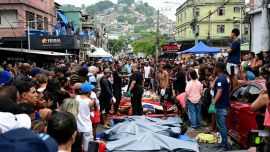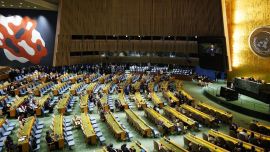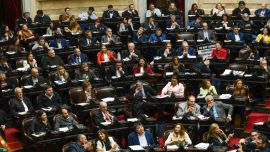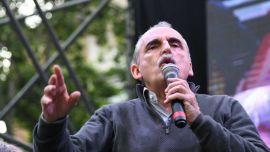Hurricane Melissa moved closer to Bermuda on Thursday after a destructive passage through the Caribbean, causing at least 24 deaths in Haiti and left parts of Jamaica and Cuba
While flooding is expected to ease in the Bahamas by Thursday, according to the US National Hurricane Center, it may continue in Cuba, Jamaica, Haiti, and the Dominican Republic.
A study by Imperial College London states that the storm, one of the most powerful ever recorded, was four times more likely to occur because of human-caused climate change.
It was forecast to pass over Bermuda by late Thursday, with maximum wind speeds of about 165 kilometres per hour. Authorities are advising residents to take precautions against the still-powerful storm.
Melissa struck Jamaica and Cuba with great force, leaving residents to assess the damage and begin their long road to recovery.
Communication and transportation systems are still mostly disrupted in both countries, and a comprehensive assessment of the damage could take days.
In the eastern region of the communist island of Cuba, facing its worst economic crisis in decades, people struggled through flooded streets lined with submerged and collapsed homes.
The storm shattered windows, owned power cables and mobile communications, and ripped off roofs and tree branches.
Melissa "killed us, because it left us destroyed," said Felicia Correa, who lives in the La Trampa community near El Cobre.
She told AFP, "We were already going through tremendous hardship. Now, of course, we are much worse off".
Some residents cleared debris or tried to repair damaged roofs, while others ventured out in search of food as shops began reopening.
Cuban authorities said about 735,000 people had been evacuated, mainly in the provinces of Santiago de Cuba, Holguin and Guantánamo.
'Disaster area'
The United States mentioned they are in contact with the governments of Jamaica, Haiti, the Dominican Republic and the Bahamas, as US Secretary of State Marco Rubio said rescue and response teams were in route.
He later added the ideological rival Cuba, stating that the US is "prepared to provide immediate humanitarian aid to the people of Cuba affected by the hurricane."
The UK government is giving out £2.5 million (about US$3.3 million) in emergency funding for the region, and is arranging "limited" flights to help British nationals leave.
In Jamaica, UN resident coordinator Dennis Zulu told reporters Melissa had caused "tremendous, unprecedented devastation of infrastructure, of property, roads, network connectivity."
Authorities there have stated that confirming reports of deaths has been challenging as access to the hardest-hit areas was limited, and some people were still unable to reach family and loved ones.
"What I will say is there have been casualties and we do anticipate based on our information that there'll be more," said government minister Desmond McKenzie in a briefing.
'Everything is gone'
Interim UN Humanitarian Coordinator for Haiti, Gregoire Goodstein said the death toll in the island nation had risen to 24 people.
Civil defense agency head Emmanuel Pierre stated earlier that at least 10 children were killed in flooding as the hurricane passed earlier this week.
Hurricane Melissa tied the 1935 record for the most intense storm ever to hit land when it struck Jamaica on Tuesday, according to the US National Oceanic and Atmospheric Administration (NOAA).
In Seaford Town, farmer and businessman Christopher Hacker saw his restaurant and nearby banana plantations flattened.
"Everything is gone," he told AFP.
These mega-storms "are a brutal reminder of the urgent need to step up climate action on all fronts," said UN Climate Change Executive Secretary Simon Stiell.
related news

Locals line up dozens of bodies after deadly police operation in Rio

At least 64 killed in war-like Rio de Janeiro drug raids

Caracas alleges CIA-backed cell planned false-flag attack on US destroyer off coast

Chile’s far-right candidate José Antonio Kast says migrants must pay for their own deportation
by Rigoberto Diaz, AFP




















Comments